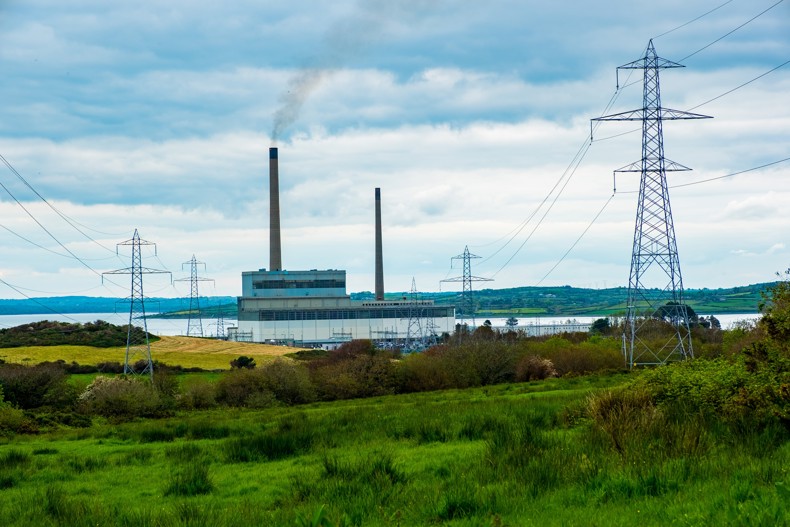SSE Thermal charting a path for low-carbon flexible generation in Ireland
28 Feb 2023
SSE Thermal is exploring options to develop two new low-carbon power stations in Ireland which would help to protect security of supply and provide flexible backup to renewable generation.
Sites in Tarbert in County Kerry and at Platin in County Meath, could provide the location for these new power stations, which would initially run on sustainable biofuel with the potential to convert to hydrogen in the future.
Biofuel provides a lower carbon option for use in power stations, using waste feedstocks to produce valuable flexible electricity making it an important transitionary solution as plans for a greater use of hydrogen and carbon capture are developed. The proposed units will run on Hydrotreated Vegetable Oil (or HVO), which is produced by processing waste oils to create a fossil-free alternative to diesel in accordance with EU sustainability standards.
Development at the two sites could provide up to 450MW of new generation capacity to the grid, with up to 300MW at Tarbert and 150MW at Platin. While in early development and still subject to a final investment decision, these new power stations could be operational as early as 2027, bringing with them the potential to underpin demand for low-carbon hydrogen in Ireland.
SSE’s existing Tarbert Power Station is required to close by the end of 2023 in line with its environmental licence. It was developed in stages between 1966 and 1977, as the final phases of Ireland’s Rural Electrification Programme were being implemented and demand for electricity was on the rise. It was the largest station on the system when it was fully commissioned. The site has a long history of power generation and local expertise, making it an ideal location for a new low-carbon plant, supporting a just transition away from high-carbon activities.
Meanwhile, Platin would help to address acute capacity constraints in the north Leinster region, with the same low-carbon technology.
These proposed stations are intended to participate in the Single Electricity Market’s upcoming Capacity Auction, which is a key tool to deliver the additional units needed to meet rising demand and replace ageing assets. Delivery of such flexible units is highlighted as a ‘national priority’ under Government’s 2021 Policy Statement on Security of Electricity Supply.
The transition to net zero will be renewables-led, but ‘on-demand’ low-carbon flexible generation is required as back-up to support the system when it is not windy or sunny. Government has set an emissions ceiling for the electricity sector requiring an approximate 75% reduction in emissions by 2030, compared to the 2018 baseline.
Likewise, SSE’s own science-based climate targets, following a 1.5-degree pathway, require it to reduce the carbon intensity of the electricity it produces by 80% in the same timeframe. Biofuel provides a transitional step away from fossil fuels and towards low-carbon hydrogen. These innovative units support an orderly transition to net zero, whilst tackling Ireland’s security of electricity supply challenges.
"There is a clear and present need for a new generation of flexible power assets in Ireland and as a company we are determined to play our part. New units at Tarbert and Platin, running on sustainable biofuel, can be a vital part of Ireland’s net zero future."
Catherine Raw, Managing Director of SSE Thermal
Catherine added: “Each would help to address concerns around energy security while providing a clear bridge to a hydrogen future and backing up renewables when the wind doesn’t blow and the sun doesn’t shine. We look forward to engaging with the local communities around each site as we develop these exciting projects further.
“SSE recognises the unique heritage of Tarbert and with this proposal aims to keep power flowing from Tarbert Island for this and future generations. Just as Tarbert supported Ireland’s electrification in the 1960s, it can now lead the way in the next generation of critical technologies for today’s challenges.”
SSE Thermal is also currently engaged in discussions regarding a potential Temporary Emergency Generation project at Tarbert following a request from the Irish Authorities. That project would provide an additional 150MW of generation capacity to operate in periods when it is clear that market-sourced generation will not be sufficient to meet system needs, and would cease operations no later than March 2028.

